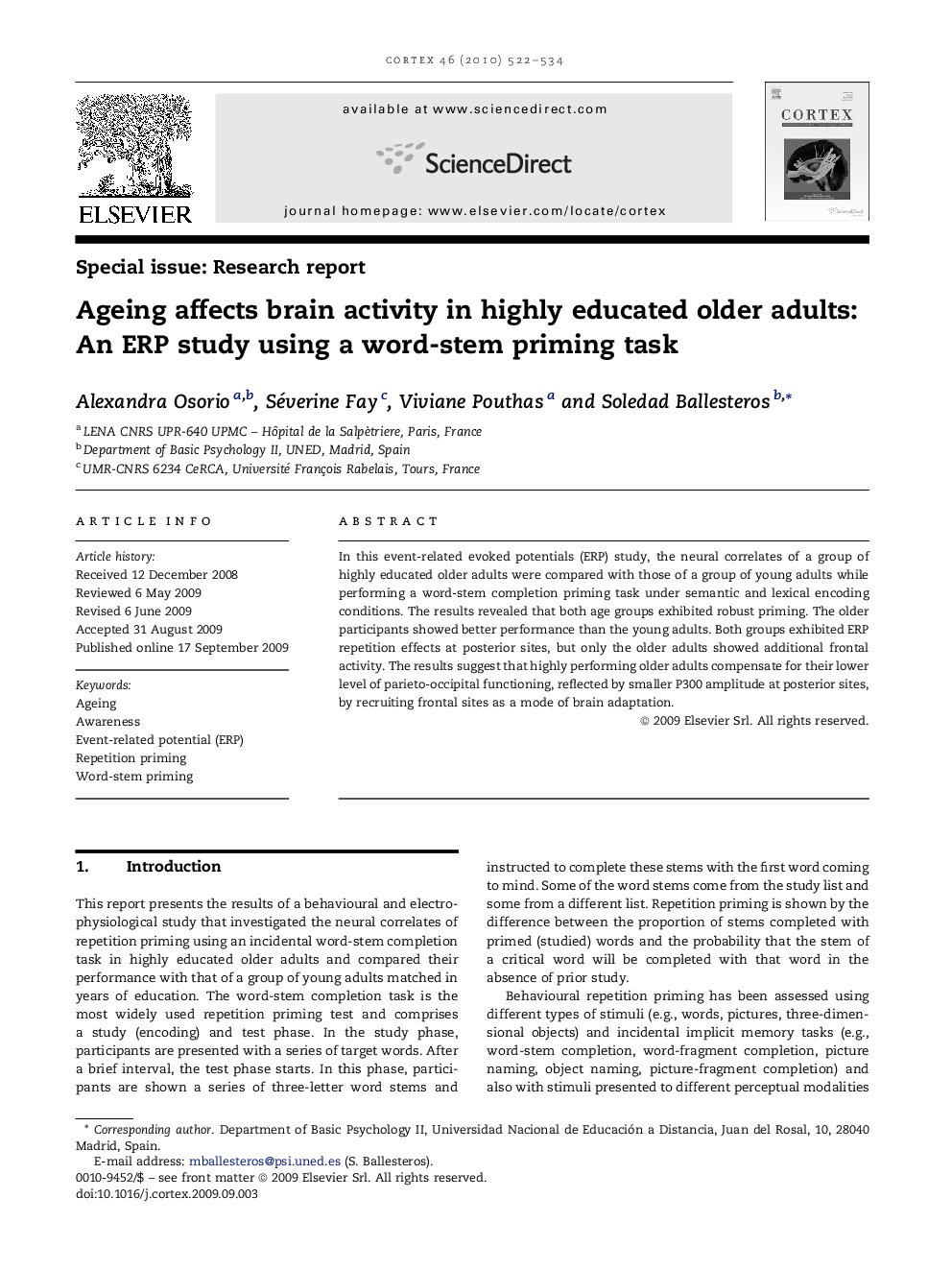| Article ID | Journal | Published Year | Pages | File Type |
|---|---|---|---|---|
| 942534 | Cortex | 2010 | 13 Pages |
In this event-related evoked potentials (ERP) study, the neural correlates of a group of highly educated older adults were compared with those of a group of young adults while performing a word-stem completion priming task under semantic and lexical encoding conditions. The results revealed that both age groups exhibited robust priming. The older participants showed better performance than the young adults. Both groups exhibited ERP repetition effects at posterior sites, but only the older adults showed additional frontal activity. The results suggest that highly performing older adults compensate for their lower level of parieto-occipital functioning, reflected by smaller P300 amplitude at posterior sites, by recruiting frontal sites as a mode of brain adaptation.
